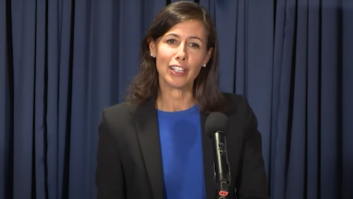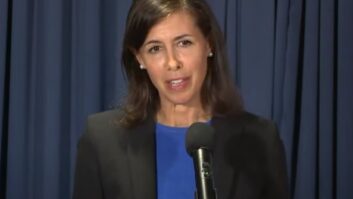On Thursday, July 28, Democrat Senators Ed Markey and Ron Wyden introduced the Net Neutrality and Broadband Justice Act, which would classify broadband internet as a telecom service under Title II of the Communications Act.
The bill would reclassify broadband internet service as an essential service, authorizing the Federal Communications Commission to enforce rules banning discriminatory practices like blocking and throttling certain lanes of internet traffic.
Following its introduction before Congress, on Friday FCC officials spoke out in favor of the legislation.
FCC Chairwoman Jessica Rosenworcel issued a statement saying she supports net neutrality because it fosters “openness and accountability.”
“The pandemic made clear internet access is no longer a luxury, but a necessity — and that consumers don’t just need broadband, they need to be able to hold their providers to account,” said Rosenworcel. “After all, everyone should be able to go where they want and do what they want online without their broadband provider making choices for them.
“While I trust the FCC has the authority it needs to adopt Net Neutrality rules, legislation that helps ensure it is the law of the land is welcome.”
[See Our Business and Law Page]
FCC Commissioner Geoffrey Starks offered his thoughts alongside Rosenworcel’s.
“I have previously stated that the FCC’s 2015 Net Neutrality rules were the right approach,” said Starks. “That approach is undergirded by a voluminous record and overwhelming public support, and it has been tested in court. The Net Neutrality and Broadband Justice Act would codify just that.”
He said the COVID-19 pandemic has proven that broadband is essential for the 21st century.
“This legislation is an important step that will provide certainty to consumers and broadband providers, and allow everyone to move forward. It has my strong support.”
As the Net Neutrality and Broadband Justice Act was unveiled Thursday, others shared their strong opposition to the legislation, including former FCC Chairman Michael Powell, now the president of NCTA — The Internet & Television Association.
Powell said in a statement that the “breathless assertions over the years that the internet is gravely threatened because ISPs would block or throttle traffic and erect toll booths to charge internet companies to reach consumers have proven hollow and unrealized.”
He said the effort would “slap an outdated and burdensome regulatory regime on broadband networks,” and that “twenty years into an increasingly stale debate over net neutrality, the justifications for it seem increasingly limp.”










